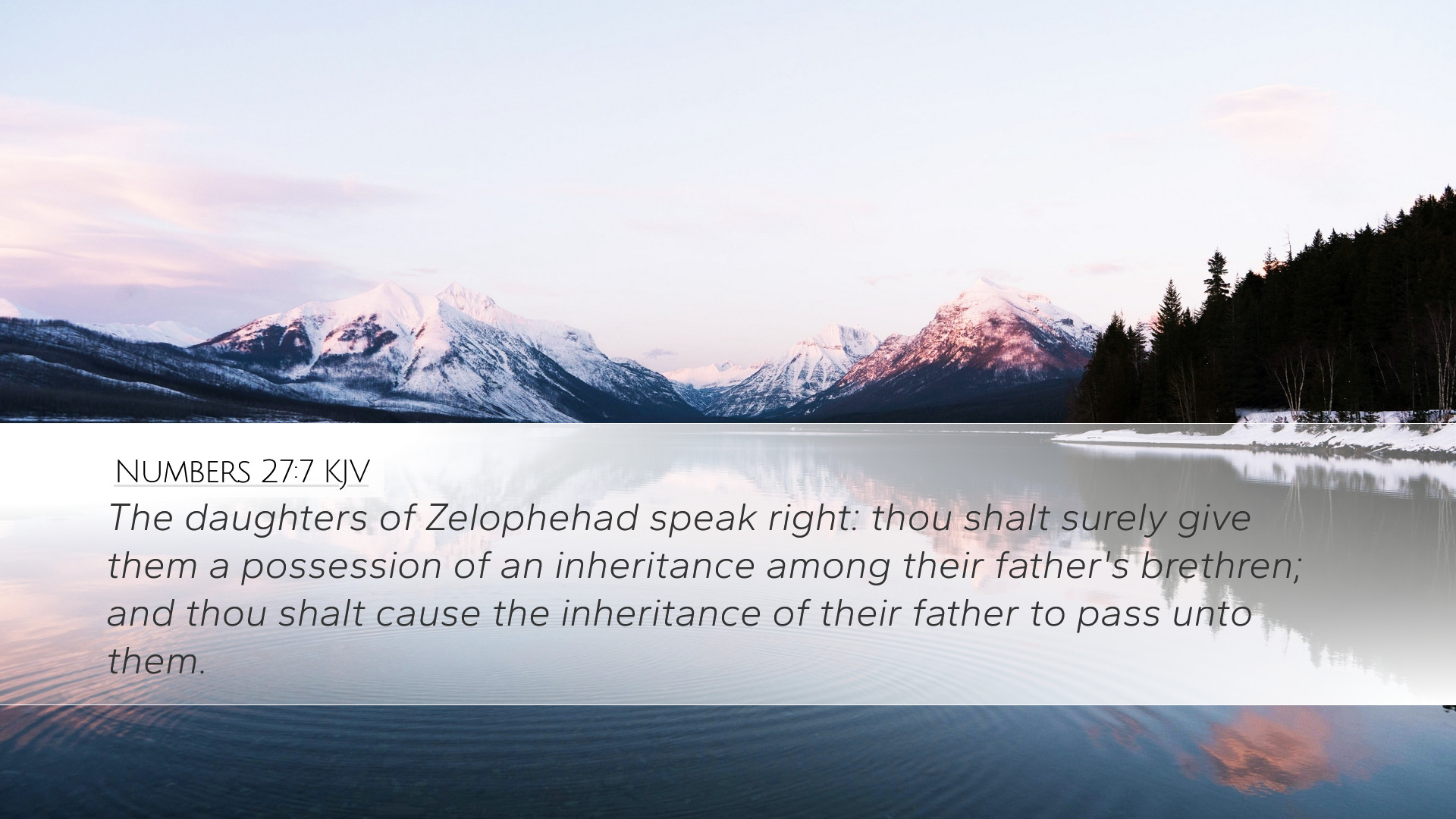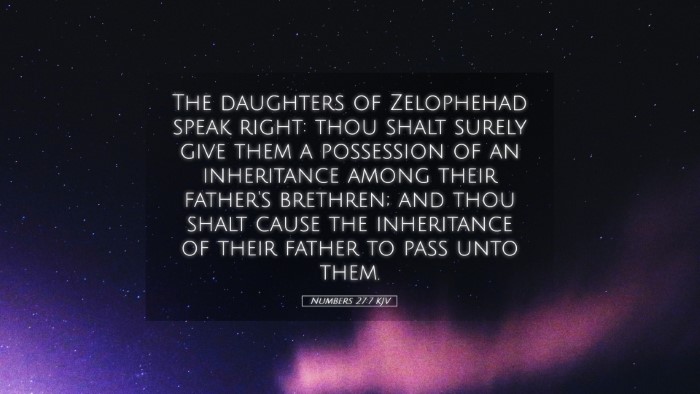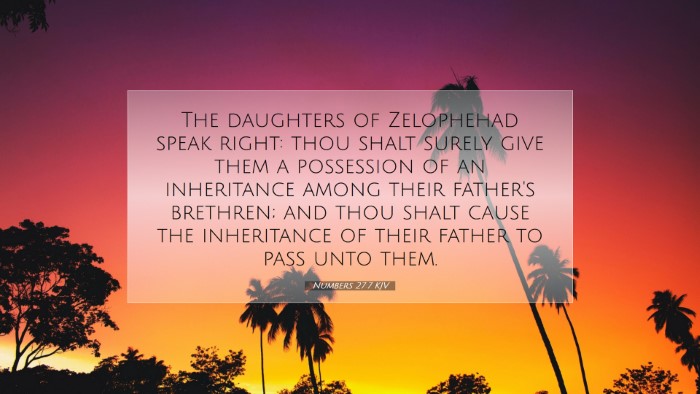Commentary on Numbers 27:7
Verse Reference: Numbers 27:7 - "The daughters of Zelophehad speak right: thou shalt surely give them a possession of an inheritance among their father's brethren; and thou shalt cause the inheritance of their father to pass unto them."
Contextual Overview
This passage occurs within the broader context of the Israelites' journey in the wilderness, as they prepare to enter the Promised Land. The account of the daughters of Zelophehad highlights issues regarding inheritance rights and social justice in ancient Israel. Their plea for inheritance serves as a significant moment in Israel's legal history.
The Importance of the Daughters' Plea
1. Challenge to Cultural Norms
The courage of the daughters of Zelophehad reflects a groundbreaking challenge to the traditional patriarchal system. Matthew Henry notes that their request was not merely for personal gain but was rooted in the principles of justice and equity. They argued from their father's lack of a male heir, emphasizing that this should not invalidate their claim.
2. Divine Affirmation
God’s response through Moses underscores the divine recognition of their rights. Albert Barnes highlights that God commands Moses to grant their petition, marking a pivotal moment where divine law aligns with the need for gender equity. This divine affirmation of social justice illustrates God’s concern for all His people, regardless of gender.
Legal and Theological Implications
1. Inheritance Laws
The granting of inheritance to the daughters serves as a foundational aspect of Israel's legal code. Adam Clarke elucidates how this case sets a precedent for future legal rulings in Israelite society. It establishes a principle that inheritance should not solely be dependent upon gender but rather the lineage and merit, indicating a more nuanced understanding of justice.
2. God’s Justice
In this decree, God's justice takes center stage. The fact that these women received direction directly from God signifies His awareness and compassion towards societal issues. The passage illustrates that God's law is just and equitable, upholding the rights of those who may be marginalized.
Significance for Modern Faith Communities
1. Empowerment of Women
This text has profound implications for the empowerment of women in contemporary faith communities. As pastors and scholars reflect on this passage, the importance of advocating for justice and equality within church structures becomes evident. Henry's commentary suggests that the same principles of advocacy seen in the daughters of Zelophehad should inspire modern congregations to challenge inequalities.
2. Understanding Inheritance
The theological underpinning of inheritance in Christ stands as a parallel to this narrative. As heirs, all believers—regardless of social or gender status—receive inheritance in the kingdom of God. Barnes draws parallels between this physical inheritance and the spiritual inheritance received by all followers of Christ, which emphasizes the inclusivity of God’s promise.
Conclusion
Numbers 27:7 transcends its historical context to speak volumes about justice, equality, and advocacy for the marginalized. The daughters of Zelophehad teach us that voices for justice can initiate change and that God honors rightful claims for inheritance, thus informing our approach to issues of equity and inclusion within today’s faith communities.
In sum, this passage not only addresses legal aspects within ancient Israelite society but also guides modern theologians, pastors, and scholars towards actions advocating for equity and justice today, affirming that everyone has a rightful inheritance in God’s kingdom.


